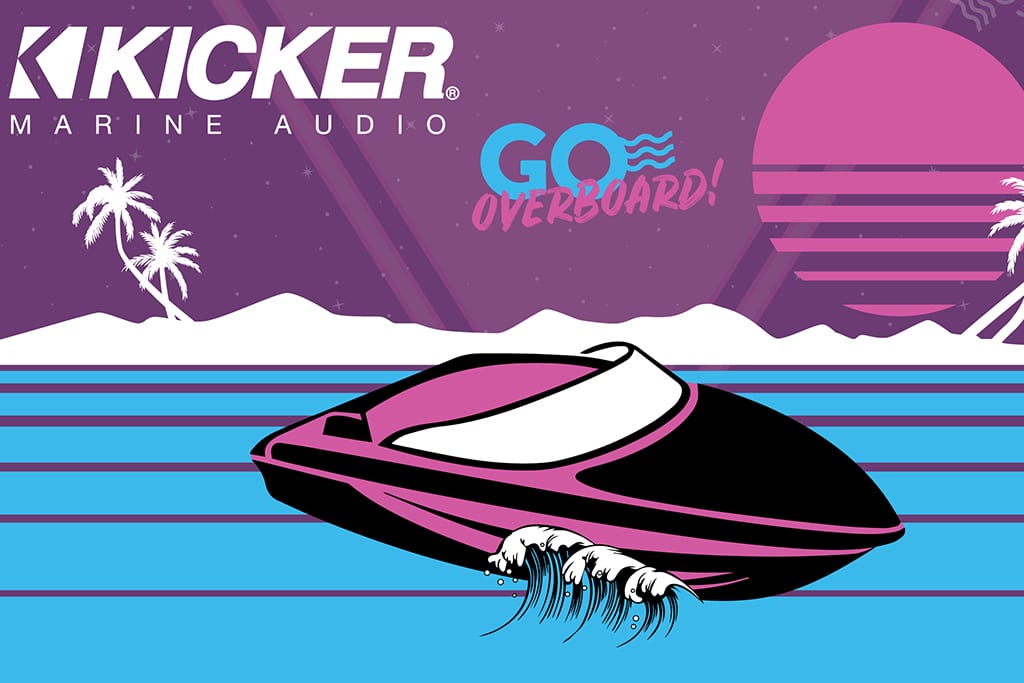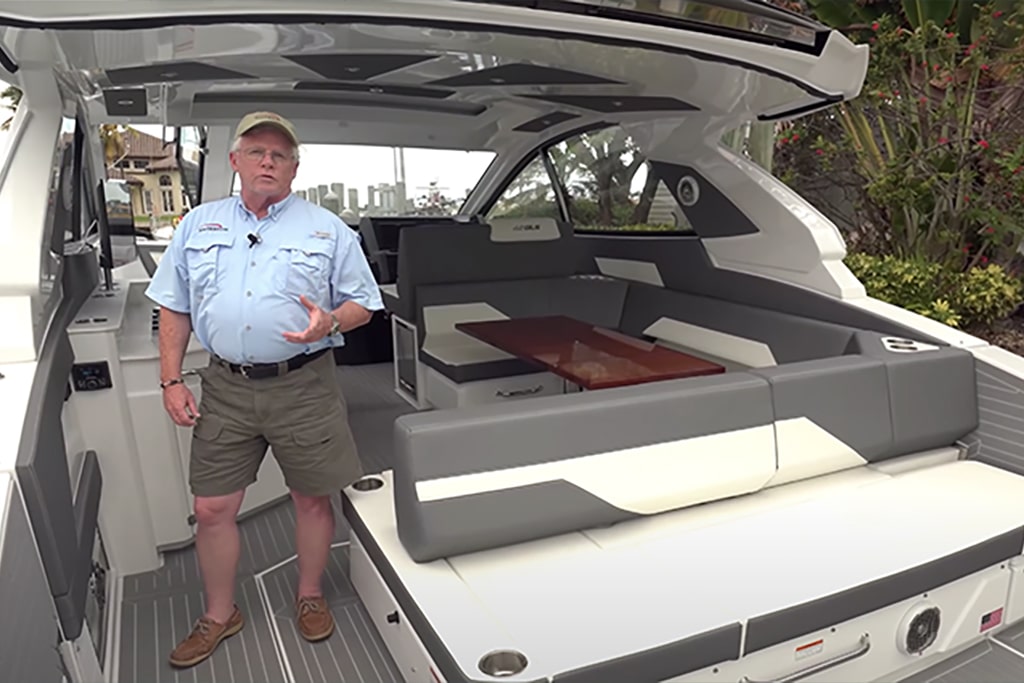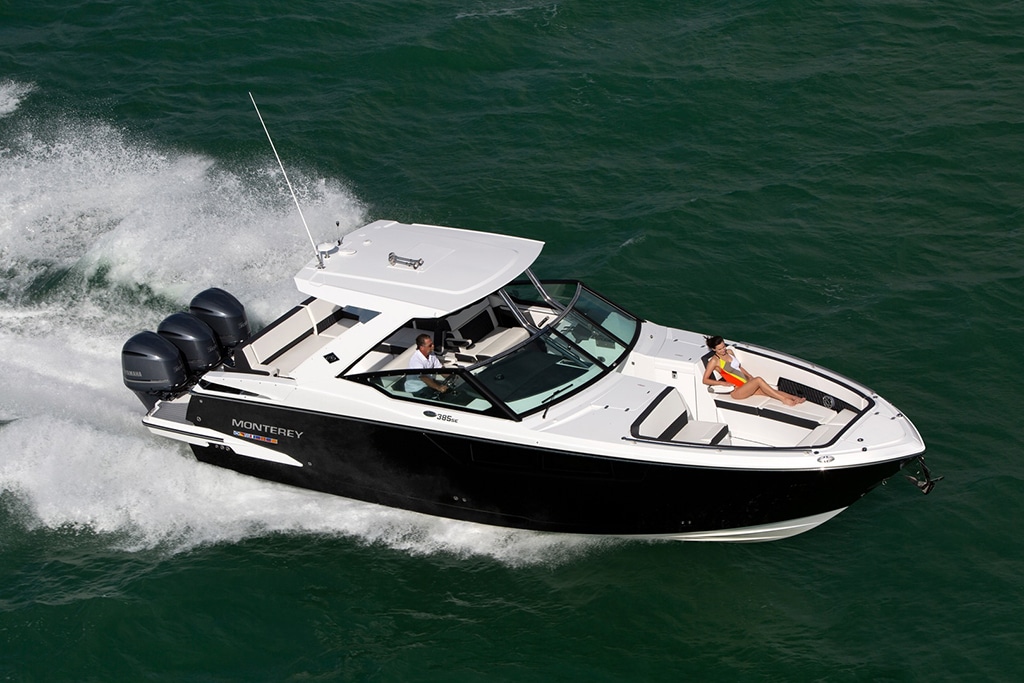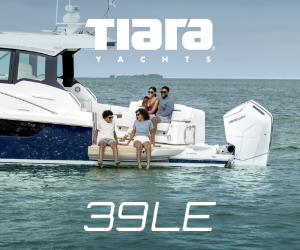Tips on Tunes
Get the most from your sound system.
What do you want from your boat’s sound system? Your listening habits, tunes, and sound system are part of your good time and your identity on the water. How to set up or restructure your sound system takes a little planning.
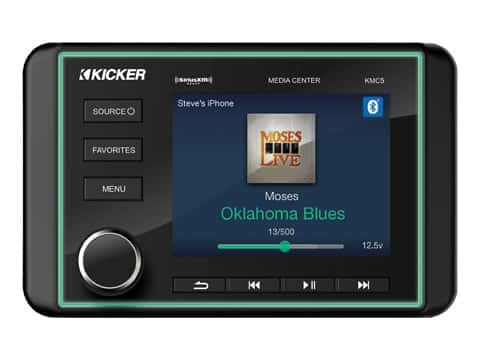
“Have a game plan,” says John Myers of KICKER. “Don’t think of your boat’s sound system like the stereo system in your home or car. While they all project sound, the extreme elements of moisture, salt, heat, and vibration necessitate that a boat system be not just durable, but also planned around your particular uses.” Myers suggest asking yourself these questions when setting up.
- Where do you want your sound?
- Where is there proper space to locate your speakers?
- How loud do you want it?
- How much power do you need?
Where you want your sound depends on how you use your boat. The helm, the bow, the aft deck or console, or even the cabin are all viable locations depending on how many people boat with you and where you plan to listen. Whether at the sandbar or cruising, determine how and where you project your sound. That logically leads to the second question.
The boat’s construction determines possible install locations as speakers require certain depth to fit the magnet and basket, which hold the speaker components. Your installation will depend on where panels are located and where the fiberglass and core can accommodate the depth of your speakers.
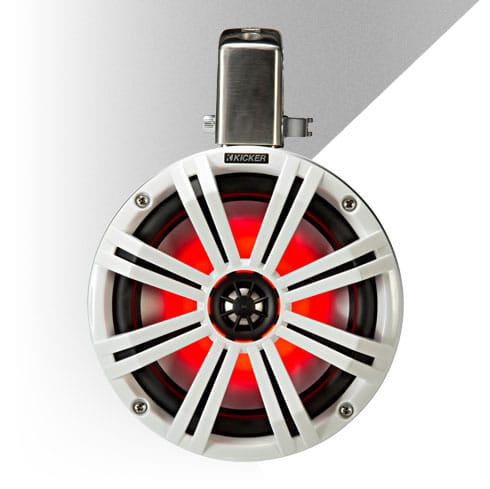
Speaker mounting is very important to sound quality. The most popular marine applications utilize open spaces to mount speakers. The open-air space is called “infinite baffle,” aka “Free Air” (a KICKER-coined term that is now used industry-wide to explain the lack of dedicated speaker enclosure). Most speakers in boats are mounted on a panel that is not specifically enclosed for the speaker, but may also house other items like life jackets and other boating essentials in under-seat storage compartments. Infinite baffle installation contrasts with tower cans, which are sealed enclosures as the speaker is wrapped in an airtight environment.
A sealed enclosure for the subwoofer offers improved power handling and output but requires a specific air volume. Subwoofer enclosures can be made of any material so long as it does not flex. That is why fiberglass makes a good enclosure but is time-consuming, more expensive, and harder to construct. All subwoofer enclosures need the right volume of airspace. Sealed is an improvement to infinite baffle, but to get even more output, the enclosure may need to be vented.
How loud you want your music also determines the size, type, and number of speakers, subwoofers, and amplification required. Subwoofer (a speaker that plays lower frequencies of bass) size and number will determine how much power you need to run them. Additional power is especially important if you like the sound of pure, pulsing bass. More bass output requires bigger speakers or subwoofers which could also mean you’ll need additional power for amplification. The location of multiple or larger amplifiers will depend on where you can properly ventilate them. While powerful, newer, smaller amps generate less heat than older ones, you have to evaluate not just air circulation to keep amps cool, but the additional power requirement for your audio system.
The typical 6.5-inch or 8-inch coaxial may not reproduce sufficient bass, so bigger subwoofers come into play. These all need more power and a dedicated amplifier. The purpose of a speaker is to move air. Larger speakers move more air and require more enclosure space. Myers explains sound like a stone hitting the water and causing ripples—the bigger the stone, the stronger the ripple effect. So size does matter. If you cut corners on your speakers, subwoofers, electrical system, or amplifiers, you sacrifice the quality of your sound.
Installing more sound requires more supporting electrical power. The number of additional batteries and the possibility of a larger output alternator are power considerations. Myers offers this rule of thumb: “For every 1,500 watts, add an identical battery to your existing battery.” Do you want to tie batteries together? While deep-cycle rechargeable batteries are popular, they are not the best for sound. Since your house battery starts your boat, a battery isolator can ensure that your house battery maintains power—even if the auxiliary battery, which you may add for your sound system, is drained by other operations or fails.
If you play music primarily while the boat is in operation, just connect additional battery(s) to the existing battery and wire them parallel. If you play your stereo with the ignition off, use a battery isolation method to avoid draining your main battery.
The final wiring details can make all the difference in ensuring that your system holds up to the elements. Using only pure copper amplifier power wire is important to avoid saltwater corrosion. Copper Clad Aluminum (CCA) wire should be avoided as it is 98 percent aluminum with a thin copper coating that produces more corrosion and less connectivity. Cutting corners will compromise your sound.

So before investing in your boat’s sound system, spend some time analyzing your boat, your listening lifestyle, and your budget. Being aware of the details will improve your installation and enjoyment of your boat’s sound, no matter where and how you like it. kicker.com


